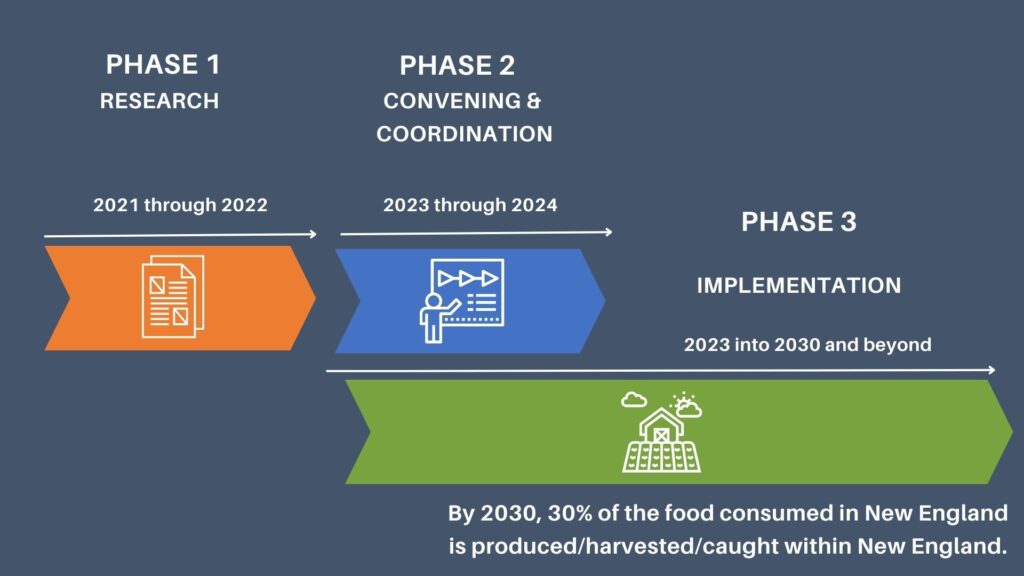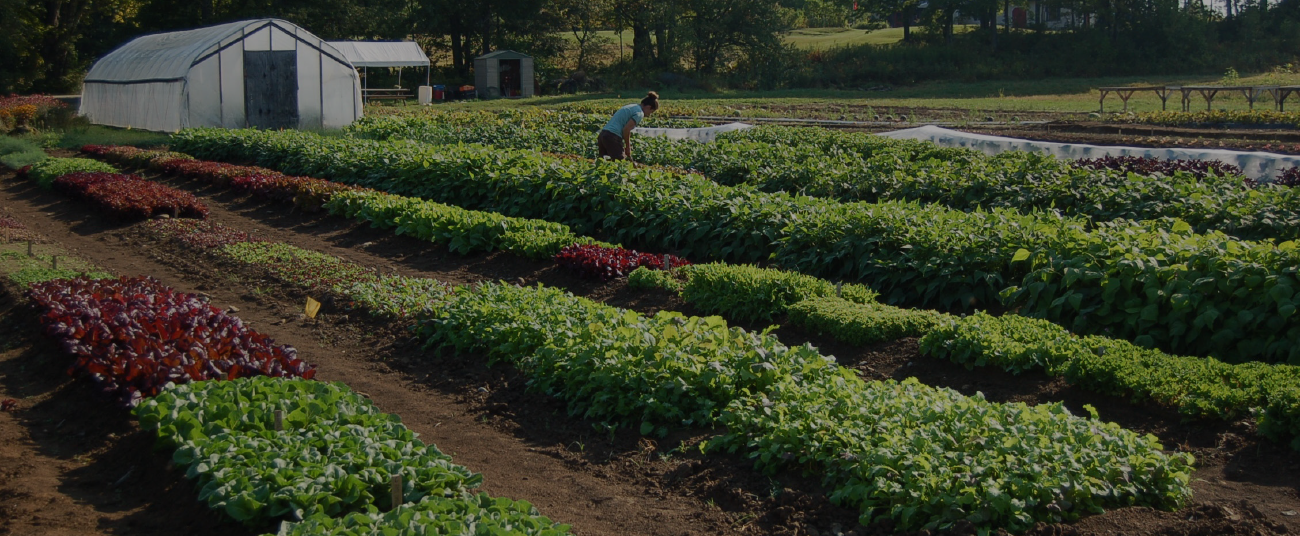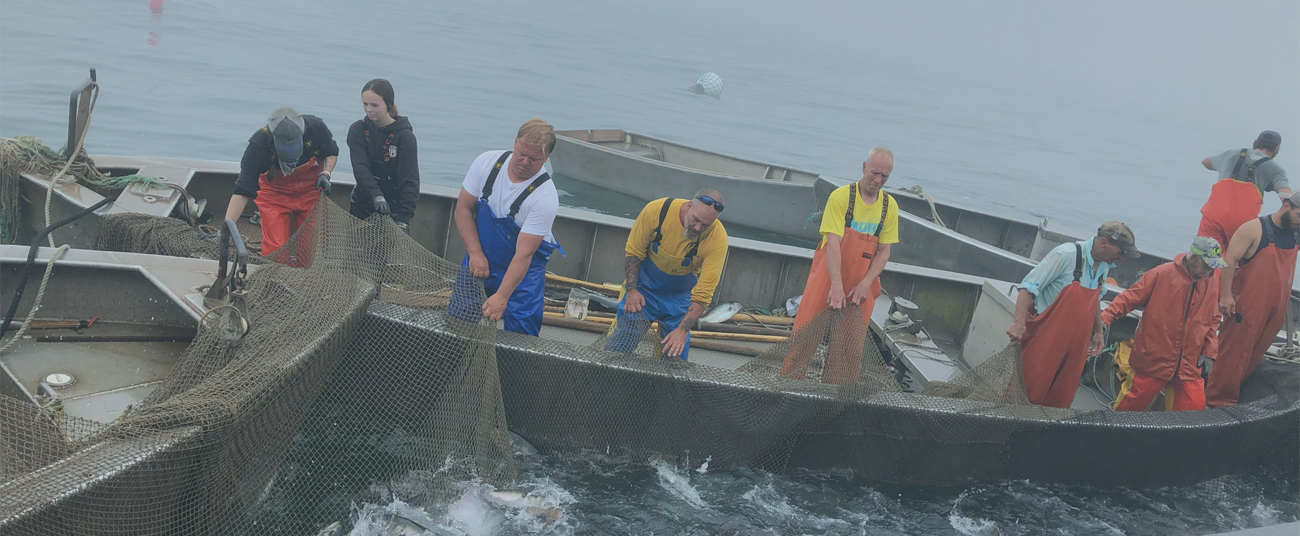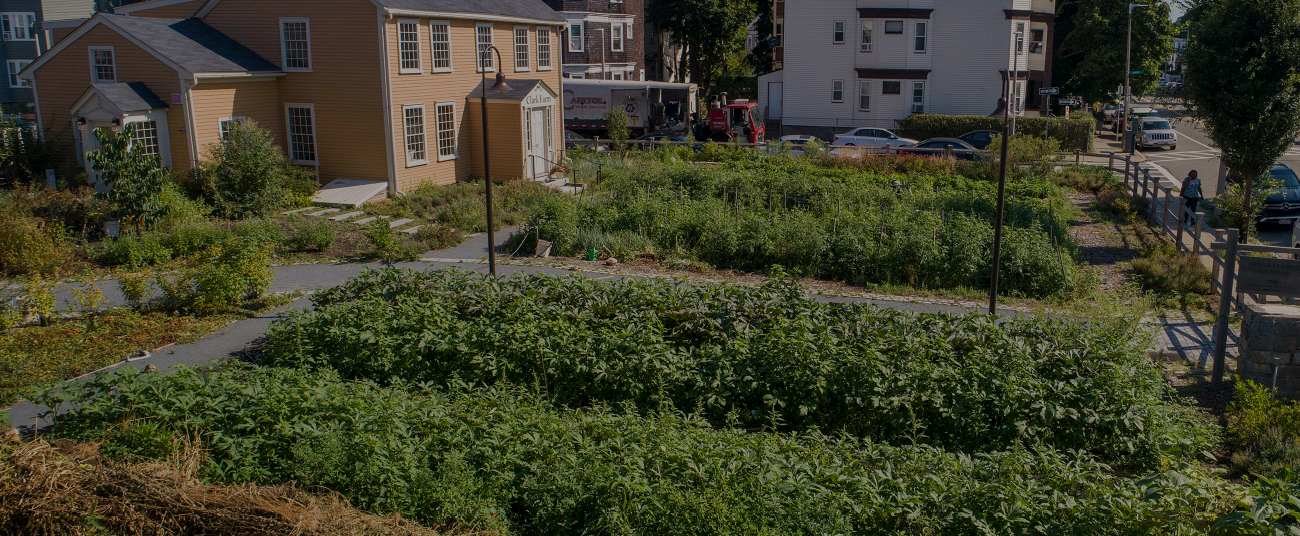The New England State Food System Planners Partnership is a collaboration among six state-level food system organizations and Food Solutions New England, a regional network that unites the food system community. Together, we are mobilizing our networks to impact local and regional food supply chains, and strengthen and grow the New England regional food system.
Our Vision: A Reliable and Resilient Food Economy
Now and in the future, we face rapidly changing climate, environmental, and public health conditions, including health and income inequities. We want to transform our regional food system to ensure adequate, affordable, socially and culturally appropriate products under a variety of rapidly changing climate, environmental, and public health conditions.
This can be achieved through:
- Expanded regional food supply chains and associated employment.
- A transition to climate-smart and -adaptive food production, processing, distribution, consumption, and waste management.
- Local, equitable control of land and water for sustainable food production.
We advocate for policies that advance farm, fish, and food issues using sound data and science. We are committed to advancing racial equity in access to land, food, jobs, economic opportunity, and decision-making.
Our Goals
Across our region, 30% of the food consumed in New England will be produced in New England by 2030, consistent with the shared goals laid out in the 2014 New England Food Vision developed by Food Solutions New England.
Regional food supply chains will be reliable and resilient ensuring that everyone in our region has access to enough healthy food every day and that our food, farming, and fishing economies are thriving and vibrant.
Our regional food system will support the economic viability and competitiveness of independent small and mid-scale producers, processors, distributors and retailers who tailor to the diverse food needs of all New Englanders.
In addition to meeting the immediate food needs of increasingly diverse consumers, we commit ourselves to addressing the root causes of inequities in our food system and making pathways for increased sovereignty and ownership by historically marginalized groups.
Our Projects
In 2019, the New England State Food System Planners Partnership launched the New England Feeding New England: Cultivating A Reliable Food Supply Project, a 10-year initiative to prepare the region for system shocks such as climate-related weather events and public health emergencies. Our aim is to increase regional food production for regional consumption. We can improve the reliability of our regional food system by strengthening supply chains.

During the Research Phase, we conducted foundational research in order to:
- Develop food production milestones and quantify additional acreage needed in active agriculture production in order to reach the ‘30 by 30’ goal.
- Assess the current economic impact generated through the regional food system.
- Assess the level of contribution each market channel needs to reach the ‘30 by 30’ goal.
- Develop a landscape analysis of which organizations are promoting climate-friendly production practices, innovative and replicable food security related responses to public health emergencies, strategies for incorporating food security into emergency management plans, and policies that support building a more resilient regional food supply chain.
- Develop a food system resiliency assessment tool to identify ways to make local, state and regional food systems more resilient to the impacts of climate shocks and health emergencies.
During the Convening Phase, we will be disseminating the research we conducted and holding a series of convenings with stakeholders across the food system and across the region.
During the Implementation Phase, we will be collaborating with others in our individual states and across the region to take appropriate action that will lead to achieving our ’30 x ’30 goal.
Our Intended Outcomes
- Relevant, timely foundational data and analysis provided for each state and the 6-state region, which can be used for public, private, nonprofit, community, and philanthropic planning and investment decisions.
- Broadened and strengthened networks within and between states — working collaboratively to establish regionally-coordinated and prioritized implementation goals, objectives, and activities.
- Regional coordination among state-level, public sector decision makers on critical topics and priorities related to the development of a just and resilient regional food system.








